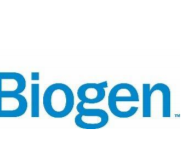
Roche, Biogen and Ionis Announce Collaborative Research Partnership
See the following announcement from May 16, 2019.
Also, see a Q&A on this collaboration for more details.
Dear Angelman Syndrome Community,
We, Roche, Biogen and Ionis, are amongst several companies working towards finding potential treatments for Angelman Syndrome (AS). While Roche and the Biogen/Ionis team have two independent research programs, we all share the common goal of bringing potential new therapies for AS into clinical trials in the future. Improving the understanding of AS is a very important step in the drug development process, and AS families are at the center of our efforts. We are writing this letter to share with you an update on some of our current work in AS.
Today, we announce our collaborative research partnership on two new studies that will improve the understanding of AS and guide the design of future drug studies:
One study is called the AS CSF and Biomarker Study and is led by Biogen. The aim is to find potential biomarkers, biological signs of disease, that can be measured in CSF (cerebrospinal fluid, which is the fluid around the brain and spinal cord). These biomarkers could then be used to check if a drug has an effect on AS.
The other study is called the AS Endpoint Study, and is led by Roche. The aim is to find ways to measure disease impact in the home and clinic, and use new technologies to learn about AS. These measurements (endpoints) and technologies focus on areas such as sleep, communication and brain activity.
These two studies do not involve any drug. Their purpose is to help design possible drug trials for AS in the future. The specific goals of these studies have not been covered before by other observational studies in AS. These studies are expected to start in the second half of 2019. More information will be available on ClinicalTrials.gov when the first sites are opened. We will let you know as soon as this information is available.
Families will be able to join one or both of these studies, and they can also be part of other non-drug studies such as the FDA funded Natural History Study at the same time. As you may already know, gathering natural history data in Angelman Syndrome patients is a critical component to understanding the disease. To design the best clinical study for a treatment, we need to better understand the disease progression in the absence of a treatment. Taking part in non-drug studies typically does not prevent someone from taking part in any studies involving an investigational drug in the future, as long as the individual matches the inclusion criteria for a future drug study.
Our companies are working together on these two new studies, in collaboration with researchers and families in the Angelman community, so that important scientific information on AS is collected and shared. In parallel to these non-drug studies, our companies continue to independently research potential drug candidates for future clinical studies.
We are very grateful to all families who volunteer to take part in research and drug development efforts. Only with your support can we advance potential therapies towards clinical trials. We look forward to enhancing our partnership with the community by providing regular updates on the status of these studies and our independent programs.
Sincerely,
The Roche, Biogen and Ionis Teams

